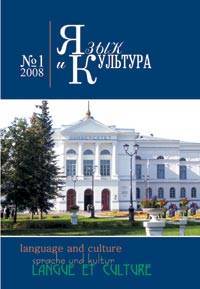Influence of the tandem method on mastering post-graduate students in written scientific discourse
This paper is devoted to the description of the experimental verification of the influence of the tandem method on mastering post-graduate students in written scientific discourse. The tandem method is a method of mastering, teaching or teaching based on the partnership of the participants in the educational process, which can be students (student-student), student and teacher (student-teacher) and teachers (teacher-teacher). Teaching tandem is one of the types of tandem, when two teachers take part in the training: a foreign language teacher and a specialty teacher. It is the teaching tandem that appears to be a unique method of teaching the written scientific discourse of graduate students when two components are at the center of the training: the linguistic (structural organization of written scientific work, the correspondence of each structural component to its tasks, the use of linguistic means to achieve cohesion and coherence of the scientific text, the use of professional vocabulary and grammatical constructions) and professionally oriented in the scientific sphere (justification the relevance of the scientific work, a sufficient amount of use in the scientific work of professional sources, consistency in the presentation of data, facts and information, the problem of scientific research and the validity of the key findings). In the work the authors: a) determine the relevance of the study, b) identify the characteristics and scope of each of the teachers working in tandem, c) select the content of the teaching for foreign scientific discourse of postgraduate students, d) describe the preparation, conduct and results of pilot training aimed at check the effectiveness of the use of the tandem method (teaching tandem) in teaching graduate students to a foreign written scientific discourse.
Keywords
иностранный язык для специальных целей, тандем-метод, дискурс, научный дискурс, письменный дискурс, аспирантура, English for Specific Purposes, tandem method, discourse, research discourse, writing discourse, graduate schoolAuthors
| Name | Organization | |
| Sysoyev P. V. | Derzhavin Tambov State University; Moscow Pedagogical State University | psysoyev@yandex.ru |
| Amerkhanova O. O. | The Russian Presidential Academy of National Economy and Public Administration | oo.amerkhanova@migsu.ranepa.ru |
References

Influence of the tandem method on mastering post-graduate students in written scientific discourse | Yazyk i Kultura – Language and Culture. 2017. № 40. DOI: 10.17223/19996195/40/20
